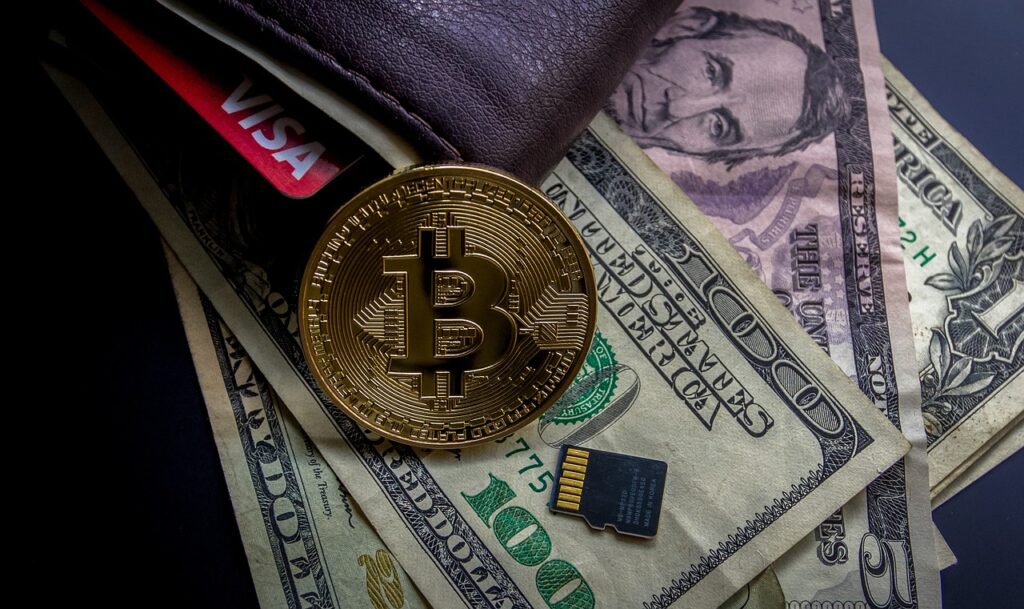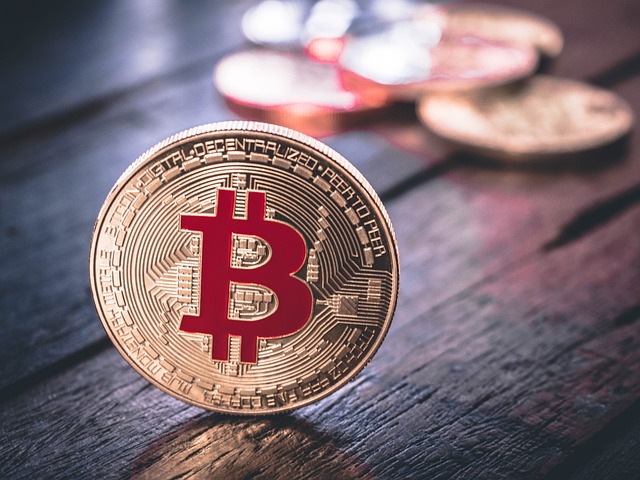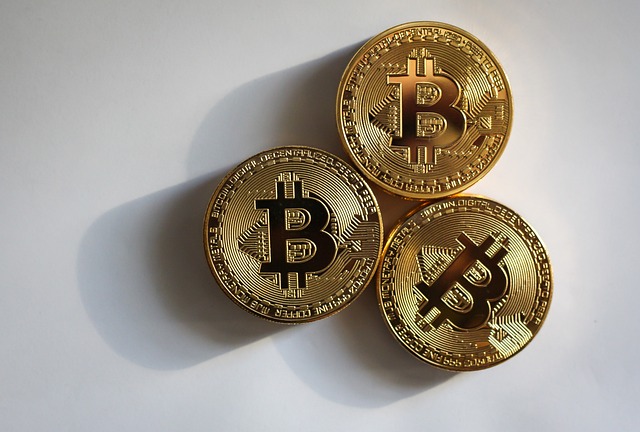DeFi Risk Assessment: Strategies for Smart Investors
DeFi Risk Assessment: Strategies for Smart Investors

Understanding the Basics of DeFi
Decentralized Finance, often abbreviated as DeFi, has been making waves in the world of finance and investment. But what exactly is DeFi? In simple terms, it is a concept that aims to provide traditional financial services using blockchain technology and smart contracts. Unlike traditional finance, which relies on intermediaries such as banks, DeFi operates in a decentralized manner, allowing users to directly interact with the platform.
One of the key features of DeFi is its ability to offer financial services to anyone with an internet connection, without requiring them to go through a lengthy and often cumbersome process of verification. This inclusivity has made DeFi particularly appealing to those who are unbanked or underbanked, as it enables them to access a wide range of financial products and services that were previously inaccessible to them. Additionally, since DeFi is built on a blockchain, it provides increased transparency and security, as all transactions and records are immutably stored on the blockchain.
Identifying the Potential Risks in DeFi Investments
DeFi investments come with their fair share of risks that investors need to be aware of. One of the potential risks is smart contract vulnerabilities. Smart contracts are the building blocks of DeFi platforms, and any flaws in the code can be costly. These vulnerabilities can be exploited by hackers, leading to the loss of funds for investors. To mitigate this risk, it is important for investors to thoroughly assess the security measures and audits conducted on the smart contracts before investing their funds.
Another risk to consider in DeFi investments is the volatility of cryptocurrency prices. Cryptocurrencies are known for their price fluctuations, which can happen rapidly and unpredictably. This can lead to sudden losses if the value of the invested cryptocurrency drops significantly. Therefore, investors need to assess their risk tolerance and be prepared for potential losses when investing in DeFi. It is advisable to only invest an amount that one is willing to lose and to diversify the portfolio to minimize the impact of price volatility.
Evaluating the Security Measures of DeFi Platforms
When it comes to evaluating the security measures of DeFi platforms, it is essential to conduct thorough research and analysis. Due to the decentralized nature of these platforms, there are certain risks involved that investors need to be aware of. One important aspect to consider is the underlying blockchain technology used by the platform. The security and immutability of the blockchain network play a crucial role in safeguarding user funds and data. Therefore, it is necessary to assess the reputation and reliability of the blockchain network that the DeFi platform is built on.
Another factor to consider when evaluating the security measures of DeFi platforms is the smart contract code. Smart contracts are programmable codes that execute predefined actions on the blockchain. These codes are responsible for managing and executing transactions on the DeFi platform. It is crucial to evaluate the quality of the smart contract code and ensure that it has been thoroughly audited for vulnerabilities and bugs.

Conducting Due Diligence on DeFi Projects
When it comes to investing in DeFi projects, conducting due diligence is of utmost importance. Without proper research and analysis, you may end up falling victim to scams or investing in projects that lack potential or stability. Therefore, it is crucial to take the time to thoroughly investigate and evaluate the DeFi projects you are considering.
Start by researching the team behind the DeFi project. Look for information about their experience, expertise, and track record in the industry. Check if they have a proven history of successfully launching and managing similar projects. Additionally, it’s essential to analyze the project’s whitepaper, which outlines its goals, technology, and strategies. Look for a sound and comprehensive plan that is backed by real-world applications and potential partnerships.
Furthermore, analyze the current state and reputation of the DeFi project. Take a close look at the project’s website, social media channels, and online forums. Look for any red flags such as negative reviews, lack of transparency, or unrealistic promises.

By conducting due diligence on DeFi projects, you can minimize the risks associated with investing in this relatively new and rapidly evolving space. Thoroughly researching the team, technology, and reputation of a project will help you make informed investment decisions and contribute to the growth and sustainability of the DeFi ecosystem.
Diversifying Your DeFi Portfolio
In order to minimize risks and maximize potential returns, diversifying your DeFi portfolio is a crucial step. With the wide range of DeFi projects and platforms available, it is important to spread your investments across different assets and protocols. This allows you to reduce the impact of any single project failing or underperforming.
When diversifying your DeFi portfolio, it is important to consider various factors such as the type of projects, their respective risk levels, and the potential for growth. By investing in a mix of decentralized exchanges, lending platforms, and other DeFi protocols, you can ensure that your portfolio is not overly reliant on a single type of asset or platform. This way, even if one sector faces challenges, your overall portfolio can still thrive. Remember, diversification is key when it comes to DeFi investments.
Setting Realistic Investment Goals in DeFi
Setting realistic investment goals in DeFi is crucial for ensuring long-term success in your portfolio. One of the first steps is to evaluate your financial situation and determine how much you can comfortably invest. It’s important to set aside funds that you won’t need to access in the near future, as DeFi investments can be volatile and may require a longer holding period. By setting realistic investment goals, you can avoid the temptation to make impulsive decisions based on short-term market fluctuations.
Another aspect to consider when setting investment goals in DeFi is your risk tolerance. DeFi investments can offer high returns, but they also come with inherent risks. Take the time to assess your willingness to accept potential losses and adjust your goals accordingly. Setting realistic goals that align with your risk tolerance will help you maintain a level-headed approach and make informed investment decisions in the fast-paced world of DeFi.
Monitoring the Market Trends in DeFi
When participating in the world of decentralized finance (DeFi), it is crucial to monitor the market trends to make informed investment decisions. As this industry evolves rapidly, keeping a close eye on the latest developments can provide valuable insights and help identify potential opportunities. By staying up-to-date with the market trends, you can better understand the overall sentiment and direction of DeFi projects.
One way to monitor market trends in DeFi is by following various social media platforms dedicated to this industry. Twitter, Reddit, and Telegram channels are popular sources where crypto enthusiasts share news, analysis, and opinions. Engaging with the community not only allows you to stay informed but also provides an opportunity to discuss and exchange ideas with like-minded individuals. However, it is essential to exercise caution and conduct your own research before making any investment decisions based solely on social media discussions.
Implementing Risk Management Strategies in DeFi Investments
DeFi investments can offer attractive opportunities for savvy investors, but like any investment, they come with their fair share of risks. To ensure that you navigate the volatile DeFi landscape effectively, implementing risk management strategies is crucial. One of the first steps in managing risk in DeFi investments is diversification. By spreading your investments across different DeFi projects and platforms, you can protect yourself from potential losses that may occur if one project fails or experiences a significant decline in value. Diversification allows you to mitigate the risk associated with a single investment and increase your chances of experiencing positive returns.
Another important risk management strategy is setting realistic investment goals. It’s crucial to establish clear objectives for your DeFi investments and determine the level of risk you are comfortable with. By setting achievable goals and defining your risk tolerance, you can align your investment strategy accordingly. This approach will help you avoid impulsive decisions driven by the fear of missing out or the allure of quick gains. Instead, you can make informed and calculated investment choices that align with your long-term objectives in the DeFi space. Remember, managing risk in DeFi investments requires a balanced approach, considering both potential returns and potential losses.
• Diversification is a key risk management strategy in DeFi investments
• Spreading investments across different projects and platforms helps protect against potential losses
• Mitigating the risk associated with a single investment increases chances of positive returns
• Setting realistic investment goals is crucial in managing risk in DeFi investments
• Establishing clear objectives and defining risk tolerance aligns investment strategy accordingly
• Avoid impulsive decisions driven by fear of missing out or quick gains
• Make informed and calculated investment choices that align with long-term objectives
• Balancing potential returns and potential losses is essential for managing risk in DeFi investments.
Staying Informed about Regulatory Changes in DeFi
In the fast-paced world of decentralized finance (DeFi), staying informed about regulatory changes is crucial for investors and participants alike. As the popularity of DeFi continues to grow, governments and financial regulators around the world are grappling with how to regulate this new and rapidly evolving industry. Being aware of these regulatory changes can help investors navigate the legal landscape, minimize risks, and ensure compliance.
While the regulatory environment for DeFi is still developing, there are a few key areas that investors should pay attention to. Firstly, understanding how regulators classify different aspects of DeFi, such as cryptocurrencies, decentralized exchanges, or lending platforms, can provide insights into which rules and regulations may apply.

Learning from Past DeFi Failures and Successes
In the fast-paced world of decentralized finance (DeFi), where innovation reigns supreme, it is crucial to learn from the past failures and successes. Looking back at the history of DeFi, we can see a multitude of projects that promised groundbreaking solutions but ultimately crumbled due to various reasons. For instance, the infamous collapse of the DAO in 2016, a decentralized autonomous organization, serves as a stern reminder of the importance of thorough audits and smart contract security. Investors were left devastated as millions of dollars were lost overnight, highlighting the need for caution and due diligence in the DeFi space.
On the flip side, we also have remarkable success stories that exemplify the enormous potential of DeFi. Take the rise of decentralized exchanges (DEXs) like Uniswap and SushiSwap, which have revolutionized the way we trade digital assets. These platforms provide seamless access to a wide range of cryptocurrencies while eliminating the need for intermediaries, resulting in lower fees and increased transparency. Studying the achievements of such projects can offer valuable insights into the possibilities and strategies that can lead to triumph in the DeFi realm. So, whether it’s studying the pitfalls or analyzing prosperous ventures, learning from past DeFi failures and successes can undoubtedly guide us towards making informed investment decisions in this constantly evolving landscape.
What is DeFi?
DeFi, short for Decentralized Finance, refers to financial applications and platforms that operate on blockchain networks, allowing users to engage in various financial activities without the need for intermediaries like traditional banks.
What are some potential risks involved in DeFi investments?
Some potential risks in DeFi investments include smart contract vulnerabilities, hacking attacks, regulatory uncertainties, and market volatility.
How can I evaluate the security measures of DeFi platforms?
You can evaluate the security measures of DeFi platforms by looking for audits and reviews conducted by reputable firms, checking if the platform utilizes multi-signature wallets, and assessing the platform’s history of security incidents.
What should I consider when conducting due diligence on DeFi projects?
When conducting due diligence on DeFi projects, consider factors such as the project team’s experience, the project’s roadmap and goals, the token economics, and the level of community engagement.
Is it important to diversify my DeFi portfolio?
Yes, diversifying your DeFi portfolio is crucial as it helps reduce the impact of potential losses in one project and allows you to benefit from multiple opportunities within the DeFi space.
How can I set realistic investment goals in DeFi?
Setting realistic investment goals in DeFi involves understanding your risk tolerance, conducting thorough research, and considering factors such as potential returns, timeframes, and market conditions.
How can I stay informed about market trends in DeFi?
To stay informed about market trends in DeFi, you can follow reputable DeFi news outlets, join relevant social media communities, participate in forums, and keep an eye on market analytics platforms.
What are some risk management strategies I can implement in DeFi investments?
Risk management strategies in DeFi investments include setting stop-loss orders, diversifying investments, managing leverage responsibly, and regularly assessing and adjusting your portfolio.
Why is it important to stay informed about regulatory changes in DeFi?
Staying informed about regulatory changes in DeFi is important because regulatory actions can have a significant impact on the operations and legality of DeFi projects, potentially affecting your investments.
How can we learn from past DeFi failures and successes?
Learning from past DeFi failures and successes involves analyzing the causes of failures, understanding the factors that led to successful projects, and applying those lessons to make informed investment decisions in the future.
Todays Featured Product:
Buy, exchange and grow your crypto securely with a Ledger hardware wallet, combined with the Ledger Live app. It’s never been easier to keep your crypto safe and accessible. Buy direct from Ledger.com and get todays Special Offers Here.




